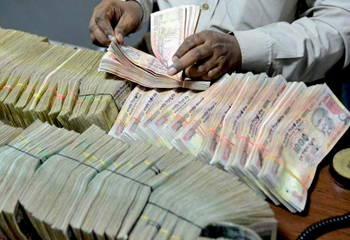New Delhi, Jul 1: The Delhi Assembly on Tuesday passed the Delhi Value Added Tax (Second Amendment) Bill which will allow the state government to regulate the VAT on petroleum products, liquor and aerated drinks.
 Objecting strongly to the bill, BJP's MLA Vijendra Gupta tore off its copy and staged a walkout along with party MLAs Om Prakash Sharma and Jagdish Pradhan.
Objecting strongly to the bill, BJP's MLA Vijendra Gupta tore off its copy and staged a walkout along with party MLAs Om Prakash Sharma and Jagdish Pradhan.
Amending the existing VAT doesn't mean that the state government will increase the tax. This move will only make tax system flexible, Deputy Chief Minister Manish Sisodia, who is also the Finance Minister, said.
The government said the bill will make enabling provisions for levy of VAT in respect of goods enlisted in the Fourth Schedule such as liquor, tobacco, aerated drinks and others - at flexible rates instead of a flat slab of 20 per cent.
"At least we have put an upper limit (30 per cent), but there are some other states where it is unlimited. Through this flexibility, we aim to end black-marketing. In Haryana, it is unlimited and in Uttar Pradesh and Punjab, the government can raise it upto 50 per cent.
"But we have fix the upper limit up to 30 per cent so that the next government cannot raise it to 50 per cent or above," Sisodia in the assembly.
The government wants to make it clear that flexibility is different and tax increase is different, he said.
He hoped that other state governments will follow suit and reduce the VAT and keep it below 30 per cent.
Sisodia rejected media reports suggesting government will icrease VAT, saying "those who are opposing it should have read it before opposing".
"Government has only cleared the proposal of increasing the VAT limit. VAT has not been increased on any such thing which will not affect the 'aam aadmi'. Instead, the government has come up with proposals to ease the entire process of VAT," an AAP leader said.
A government official said the bill is aimed at moving towards uniformity in tax rates and develop a common market to boost trade among the neighbouring states.
Last month, Delhi, Punjab, Haryana and Himachal Pradesh had agreed to move towards ensuring uniformity in tax system. The finance ministers of all four states had also agreed to set up a Zonal Economic Intelligence unit to check evasion of taxes.





Comments
Add new comment